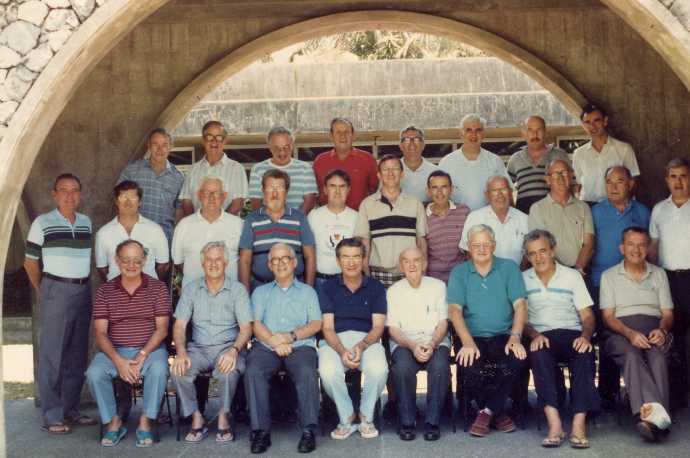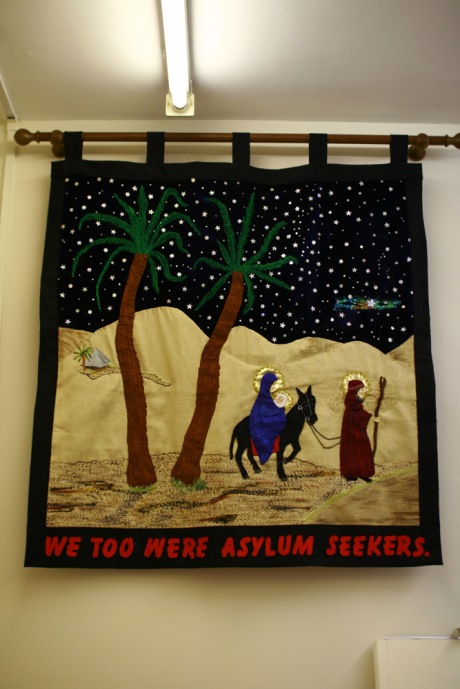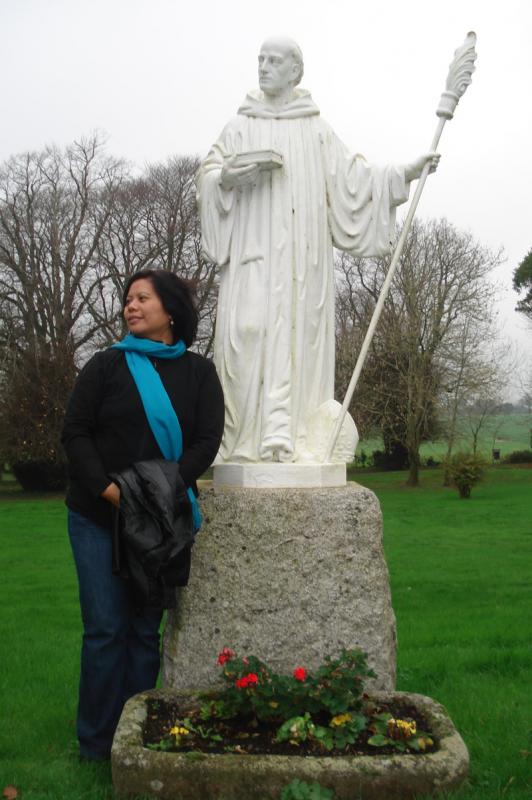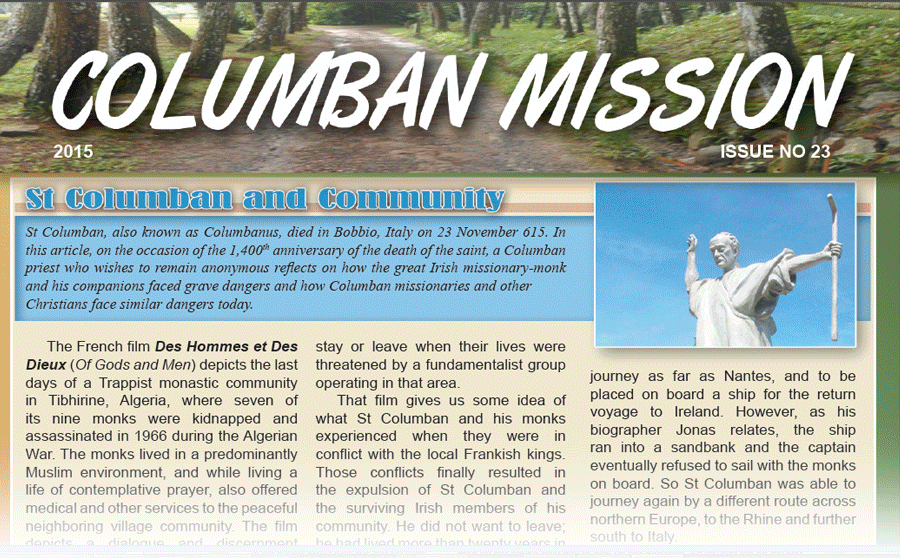Misyon Online - January-February 2012
Pulong ng Editor

Who Are the Columbans?
By Jack Pamine
Jack Pamine, originally from Bohol, lives in Bacolod City and worked with the Columbans from 1993 until 2010. Here he writes about Columban priests he has known and worked with.
 Who are the Columbans? That was the lingering question I had. Later, I understood that it is hard to find the collective identity of the group but that its strength is found in each member's spirituality and charism. How each tries to live his missionary life is really amazing. What you find is individual Columbans, each trying to live his vocation to the fullest. The Society of St Columban is not meant to be a religious community but a group of priests committed to working overseas on mission, building up the local Church.
Who are the Columbans? That was the lingering question I had. Later, I understood that it is hard to find the collective identity of the group but that its strength is found in each member's spirituality and charism. How each tries to live his missionary life is really amazing. What you find is individual Columbans, each trying to live his vocation to the fullest. The Society of St Columban is not meant to be a religious community but a group of priests committed to working overseas on mission, building up the local Church.


We too were asylum seekers
By Gertrudes Samson
‘Ger’ Samson, from Balintawak, Quezon City, is an architect by profession and went to England as a Columban Lay Missionary in 2010. Here she writes about her experience with asylum seekers in Birmingham.

When I first entered St Chad’s Sanctuary, a voluntary project of St Chad’s Catholic Cathedral, Birmingham, and the Salvation Army, I noticed at once the beautiful tapestry hanging at the right side of its main hall. It depicts the Holy Family on a journey with Mother Mary riding on a donkey while carrying baby Jesus and with St Joseph walking beside them. I thought it was just a typical Christmas decoration, but the caption at the bottom read: ‘WE TOO WERE ASYLUM SEEKERS’.

What Gets You Up in the Morning?
A vocation story interview with Fr Oliver McCrossan
1. How did you become a priest? We want to know where you started.
I was born in Ireland, in County Donegal. We are five in the family. My background is Catholic. When I was growing up in the 1960s there wasn’t enough opportunities for other work so I got interested in the Columbans. For some reason I wanted to be a missionary, not a diocesan priest because basically I was interested at that time in the Third World and I read in the Far East magazine, which we got at home, about what Columban missionaries were doing. So I was inspired by them. I wanted to go abroad and help others. I suppose it comes from my family, my mother and father were kind people. They were ordinary people, working people who struggled for life. We lived in a small rural community so I know what people have to go through. That’s the reason why I have always been interested in helping people. So I decided to join the Columbans.

With Shepherds in Uganda
By Leo P. Divinagracia
Leo P. Divinagracia is a former Mill Hill Missionary seminarian. Here he shares his mission experience in Karamoja, Uganda, a very dry place where sometimes there is no rain for almost the entire year. At Present he is an AMA Volunteer (Associate Missionaries of the Assumption) assigned in Kauswagan, Lanao del Norte as a CLE teacher in St. Vincent’s Academy. His students were both Christians and Muslims. A parish run by the Columban Missionaries for a number of years.
After two years of theological studies in Tangaza College, Nairobi, Kenya, I came home for a two-month break. When I was in Kenya, there were times I felt like going home. But when I arrived home, I felt like going back to Africa right away.

A Life Well Lived
Beth Sabado is a Columban Lay Missionary from Pagadian City. A registered nurse, she is based in Taiwan where she works at the Hope Workers’ Center.
 One of the highlights of my stay in Pagadian during my home vacation in the Philippines was the regular gatherings I had with my high school batch-mates. I definitely consider this group to be my second family because of the friendship that we’ve established through the years. With them, I feel comfortable enough to share both the easy and tough times, and just be myself. One day, we agreed to visit a classmate. I was so excited to meet him after 26 years. But just before the visit, some of our batch mates who regularly visit Jovito said, ‘His situation is really unfortunate. You might cry in front of him. Heaven forbid, don’t’.
One of the highlights of my stay in Pagadian during my home vacation in the Philippines was the regular gatherings I had with my high school batch-mates. I definitely consider this group to be my second family because of the friendship that we’ve established through the years. With them, I feel comfortable enough to share both the easy and tough times, and just be myself. One day, we agreed to visit a classmate. I was so excited to meet him after 26 years. But just before the visit, some of our batch mates who regularly visit Jovito said, ‘His situation is really unfortunate. You might cry in front of him. Heaven forbid, don’t’.
Most of us have significant dates we remember. For priests and those in religious life religious it would be the dates of their ordination and final vows, for most people their birthdates, for married couple their anniversaries, and so on. These dates are well remembered and observed mostly with a special meal or a celebration. But there are also those who remember significant dates because of a misfortune, a disaster, a loss. Either way, one event in one’s life can mark a new beginning, a new unfolding, a change.



